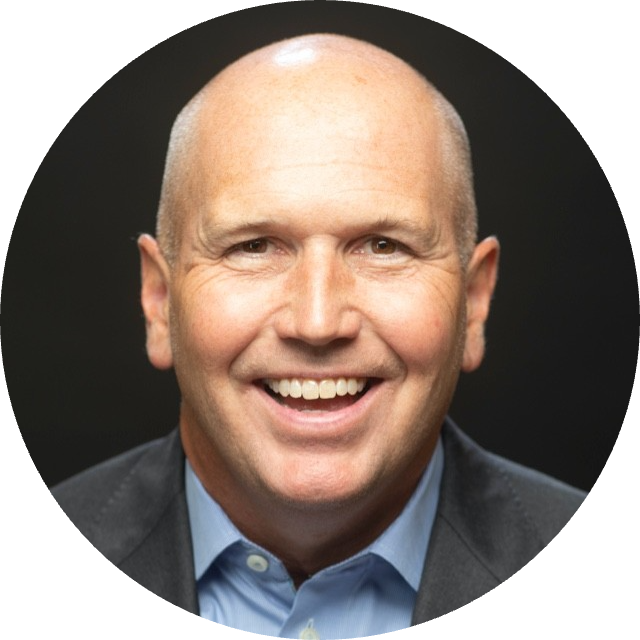‘I was holding my wife back’: How dads are making way for moms to thrive at work

It was shortly after a second promotion in three years and over 15 years in financial services that Nicholas Bowman began to question what life was all about. He’d always had a “provider” mindset, defaulting to the stereotype that it’s his responsibility to take care of his family financially. But this setup wasn’t working for him, or his family.
“I needed to really rewire my brain here,” said Bowman. “It’s reframing that I don’t need to hit goals and targets to be successful, I just need to be a dad. I don’t care who makes the money as long as everyone is happy.”
Both he and his wife – and interior designer – were working full time. But Bowman felt he was missing out on his kids’ lives, while his wife wasn’t able to progress her own career. One day he looked at his youngest – verging on 4 years old – and realized they barely knew each other. That’s when they decided to have a conversation about what needed to change. They asked themselves two questions: who enjoys what they’re doing and who can earn more if they focus on it?
“The company I was working at was very big on culture and said they support family, but was I actually being supported? Would I actually be able to leave at 2:30 p.m. any day? Or will that burden fall to my wife?,” said Bowman. “Sure enough, it was always falling to her. There is less stigma if she leaves her job to take care of the kids than me.”
They decided to flip their family roles so that Bowman became the lead parent. “I was unintentionally holding my wife back,” said Bowman. “Look at what’s happened now that I’ve made that change – her career is absolutely taking off,” said Bowman. “It’s down to her and how talented she is. She loves what she’s doing. And she’s incredibly happy.”
Before becoming a lead dad, Bowman thought he was doing 50/50 with his wife in terms of looking after the kids. After switching roles, he realized it was a lot closer to 1/99: “I’d say ‘girls get dressed’ thinking that was me contributing when in reality, they needed help getting dressed.” His wife was doing everything else at home, a tale still familiar in many households.
The Bowmans aren’t alone in their role reversals. An increasing number of dads are stepping down from jobs to become the lead parent at home. It’s a message that The Company of Dads – a community for lead dads – has touted for some time: that the stereotype that the man has to financially take care of the household should be eroded.
But there is a way to go before the stigma around parents choosing this option fades. Many women still believe it’s impossible. New research from That Works For Me, an organization that matches moms with suitable jobs and employers, has found that despite 98% of moms wanting to go back to work after they have children, only 13% think it’s viable on a full-time basis.
Paul Sullivan created The Company of Dads to try and help break this longstanding stereotype. “If you allow men to be lead dads, as opposed to being event dads it’s better for them as employers and engenders more loyalty,” said Sullivan. “But it also helps working moms. It starts to reduce the stigma, burden, and expectation that all parenting and caregiving will be done by women. Aside from giving birth and breastfeeding, it’s not particularly gendered. Anyone can make appointments, leave work early, change their schedule so that they can work from home on certain days.”
Changing the nature of the workforce
The Company of Dads has provided a community for these dads to share resources and experiences through its newsletter, website and social media.
“I live in a town where all of the caregiving parenting information is held in a Facebook mom group,” said Sullivan, who left his journalism job at the New York Times after 13 years to found The Company of Dads. “I have a better shot at getting into Harvard Medical School having never taken a biology course than I do getting into that Facebook group. Are there certain things in there only for moms? Of course. But a lot of it is ‘hey my kid is interested in playing lacrosse, where do I go?’ For us to be equal, we need to all share resources because there are plenty of moms that don’t want to do it or are too busy. There are still these gender stereotypes.”
There’s a general rise in dads who are considering becoming lead dads (the lead parent being the one who takes on the majority of caregiving at home like drop-offs/pickups, permission slips, making lunches and so on, whether they’re working or not – a role that’s traditionally fallen to women regardless of whether they work or not.) In the last 18 months, Sullivan has connected with other lead dads ranging from CEOs to professional athletes.
A positive outcome of the pandemic is that it’s normalized the need for flexibility at work. For caregivers, that’s been a vital step. For example, we don’t blink twice when a kid stumbles into the background during a Zoom call. And most companies now have working parent ERGs for additional support. But The Company of Dads takes it even further by focusing on dads and alleviating stress from moms.
“The savviest companies want more of this because it broadens their efforts, it is more inclusive and taps into this demographic,” said Sullivan. “On the flip side, I’ve talked to companies and they don’t get it at all and say we need to do more stuff for women. But if you make all of the parents groups about them, if you don’t give benefits to the spouses, what you’re really saying is that the caregiving responsibilities still fall on moms, even if they get a couple of extra weeks to do it.”
That’s why Sullivan continues to work as an ally and consider new ways to change the burden of childcare through the workforce. Instead of companies just hosting keynotes for working parents that might be largely attended by moms and a handful of dads, the Company of Dads encourages more men to show up too. They’re also in the middle of working with companies to roll out information for lead dads over time through platforms like Slack.
“Upper management might realize they have more caregivers than they thought,” said Sullivan. “If they’re just a little intentional, they can change the nature of the workforce to benefit, not just lead dads and working moms, but all caregivers. And ultimately, it will help the bottom line of the company because there will be less turnover.”


